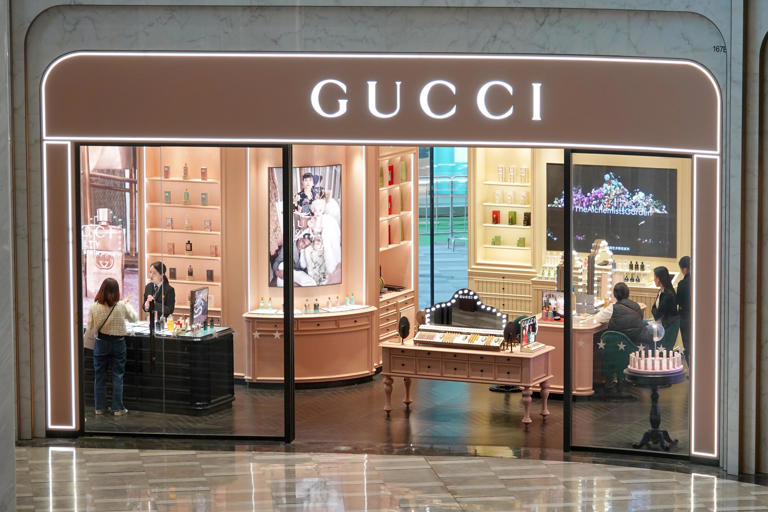Kering, a powerhouse in the luxury goods sector, boasts a portfolio of prestigious brands that have long epitomized elegance and sophistication. However, the company finds itself in the midst of adversity as it confronts a significant slowdown in consumer spending across Asia, particularly in China, one of its key markets.
The recent announcement of a projected 45% drop in recurring operating income for the first half of the year has sent shockwaves through the market, leading to a notable decline in Kering’s stock value. Gucci, Kering’s crown jewel and a stalwart in the luxury fashion realm, has borne the brunt of this downturn, experiencing an alarming 18% decline in revenue during the first quarter of the year. With revenue for the conglomerate as a whole also witnessing a substantial 10% decrease, concerns about the company’s financial health and future prospects are mounting.
The Asian market, particularly China, has emerged as a focal point of Kering’s struggles. Gucci, with its extensive presence in China boasting over two dozen stores, faced a sharp decline in sales in the region during the first quarter. Despite efforts to rejuvenate the brand under the creative leadership of Sabato de Sarno, the newly appointed designer, Gucci continues to grapple with the economic headwinds buffeting China. The nation’s real estate and stock markets are experiencing sluggish performance, dampening consumer sentiment and curbing luxury spending.
Furthermore, the broader decline in luxury spending by Chinese consumers has compounded Kering’s challenges. Previously, Chinese shoppers accounted for a significant portion of global luxury purchases. However, recent shifts in consumer behavior, exacerbated by economic uncertainties, have led to a reduction in luxury goods spending in the region. This downturn in demand poses a formidable obstacle for Kering, which has traditionally relied heavily on the Chinese market for revenue.
In contrast to some of its competitors, such as LVMH, which have managed to offset declines in Chinese spending with growth in other regions like Europe and Japan, Kering’s exposure to the Chinese market leaves it particularly vulnerable to fluctuations in consumer sentiment in the region.
Overall, Kering’s recent earnings report serves as a stark reminder of the challenges inherent in operating in the luxury goods sector, especially in the volatile landscape of the Asian market. As the company navigates through these turbulent times, investors and industry observers are closely monitoring its strategies for adapting to changing consumer trends, diversifying revenue streams, and reigniting growth in key markets.
